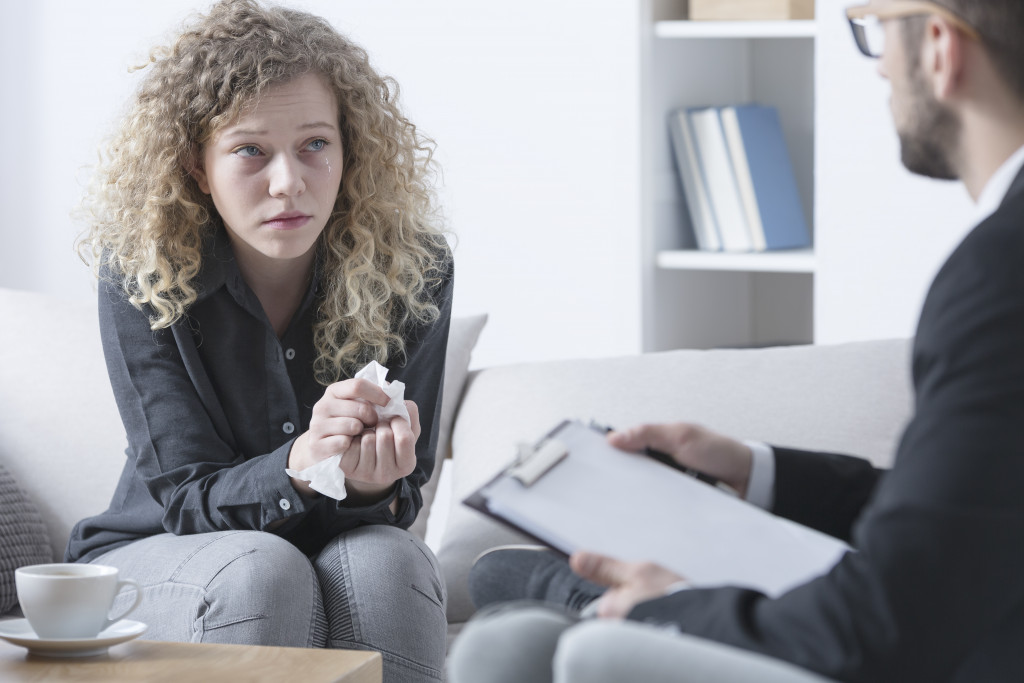Every year, man-made and natural disasters endanger hundreds of people. That includes the potential to cause catastrophic physical destruction and loss of life, often leaving an entire community in despair. Most victims will suffer from mental anguish, including difficulty breathing, constant fear, anxiety, or other depression-like conditions.
Many can recover from such disasters with the help of their community or family. Still, others will require additional aid to recover. Below is a guide that will help you recover.
What Are Natural Disasters?

Natural disasters are large-scale events that can potentially put your property or life in danger. Drought, earthquakes, wildfires, floods, hurricanes and tropical storms, tornadoes, and intense storms are the different natural disasters that humanity experiences. Wildfires, floods, hurricanes and tropical storms, tornadoes, and other severe weather events are among the most common natural disasters in the United States.
In addition, these large-scale events will require local and state planning before it strikes and kills people. That plan can include protecting public assets or evacuations.
What Are Man-Made Disasters?
Incidents of mass violence, acts of terrorism, shootings, and industrial accidents are a few examples of man-made disasters. Like natural disasters, these are also traumatic events that will put your property or life in danger. Lastly, they’ll also need local and state planning, including behavioral health resources in the affected communities and prompt evacuations from affected places.
For people dealing with trauma from man-made disasters, the Disaster Distress Helplines national hotline provides crisis counseling to people affected by these events. These are experts who can give callers comfort in difficult times. Similarly, suppose your office is under threat by these man-made events. In that case, some team collaboration tools can send mass messages to the workforce to inform them of the situation and reach out whenever necessary.
How to Cope with These Disasters
Disasters, natural or man-made, are disturbing experiences anyone can experience. While you might survive unscathed, some wounds can fester deep inside you. Here are some ways you can cope with the trauma of these events:
- Find Counselors You Can Talk To: Once a disaster strikes your community, you can talk to a crisis counselor to provide you with assistance and support to develop coping methods. That will help you battle off the effects of a natural disaster. Take advantage of these methods.
- Don’t Ignore Its Severe Effects: Don’t ignore how these disasters can affect you, especially your emotions and mental state. Look for specific methods to talk about your feelings. Natural and man-made disasters can lead to intense feelings of sadness, anxiety, and anger. Find new coping techniques to control your emotions. If you bottle all these emotions, you’ll only get worse.
- Follow Healthy Coping Methods: You can’t avoid natural disasters. Because of that, you aren’t safe from a few intense negative emotions or other consequences. Hence, you should always look for healthy ways to cope with these emotions. Temporary solutions, including seeking comfort in food, excessive sleep, or substance or alcohol use, will not be effective. It’ll be better to use long-term techniques. That’s because if you don’t deal with the problem’s root cause, it’ll only increase emotional distress.
- Try to Find Ways to Help Others: If you’ve already found the coping methods that will put you at ease, you can start trying to help others. That will instill a fresher sense of empowerment, control, and purpose.
- Look For the Right Social Support: One study consistently shows that support, resources, and early intervention have an essential role in aiding victims overcome the negative consequences of such harmful events. Because both disasters will put your community in danger, everyone will be in a panic state. But even talking to an individual can make a hugely significant difference.
- Try to Find a New Routine to Follow: It’ll be better to establish a new routine. For example, you can talk to family or friends, jog for a few hours after waking up in the morning, or set regular schedules. Natural and man-made disasters can significantly affect your daily lifestyle. That will only further complicate your life. Developing a better lifestyle and structured plan will help you find a new sense of control and comfort.
- Focus On Taking Care of Yourself: Natural disasters will exhaust you, both emotionally and physically. You’ll have to focus on caring for yourself first. Finding new self-care routines will help you improve your emotional and physical well-being. Taking care of your overall well-being will further aid in coping with the trauma. Include getting enough sleep, eating a well-balanced diet, and working out in your daily routine. Mindfulness is another technique to help you overcome the trauma.
- Limit the Stressors in Your Life: You can’t avoid life stressors, but you can limit them. You can start by making significant changes or life decisions. You should use your new coping methods to put your emotions and life back in order. Hence, make it a habit to use healthy coping strategies that will allow you to limit the stressors in your life quickly.
Don’t ignore the signs that are starting to interfere with your daily life. If that happens, it’s advisable to seek assistance. Finding a qualified mental healthcare provider can be stressful and overwhelming if you’re planning to seek therapy. Browse the web to help you find local therapists who are experts in treating post-traumatic stress disorder.

